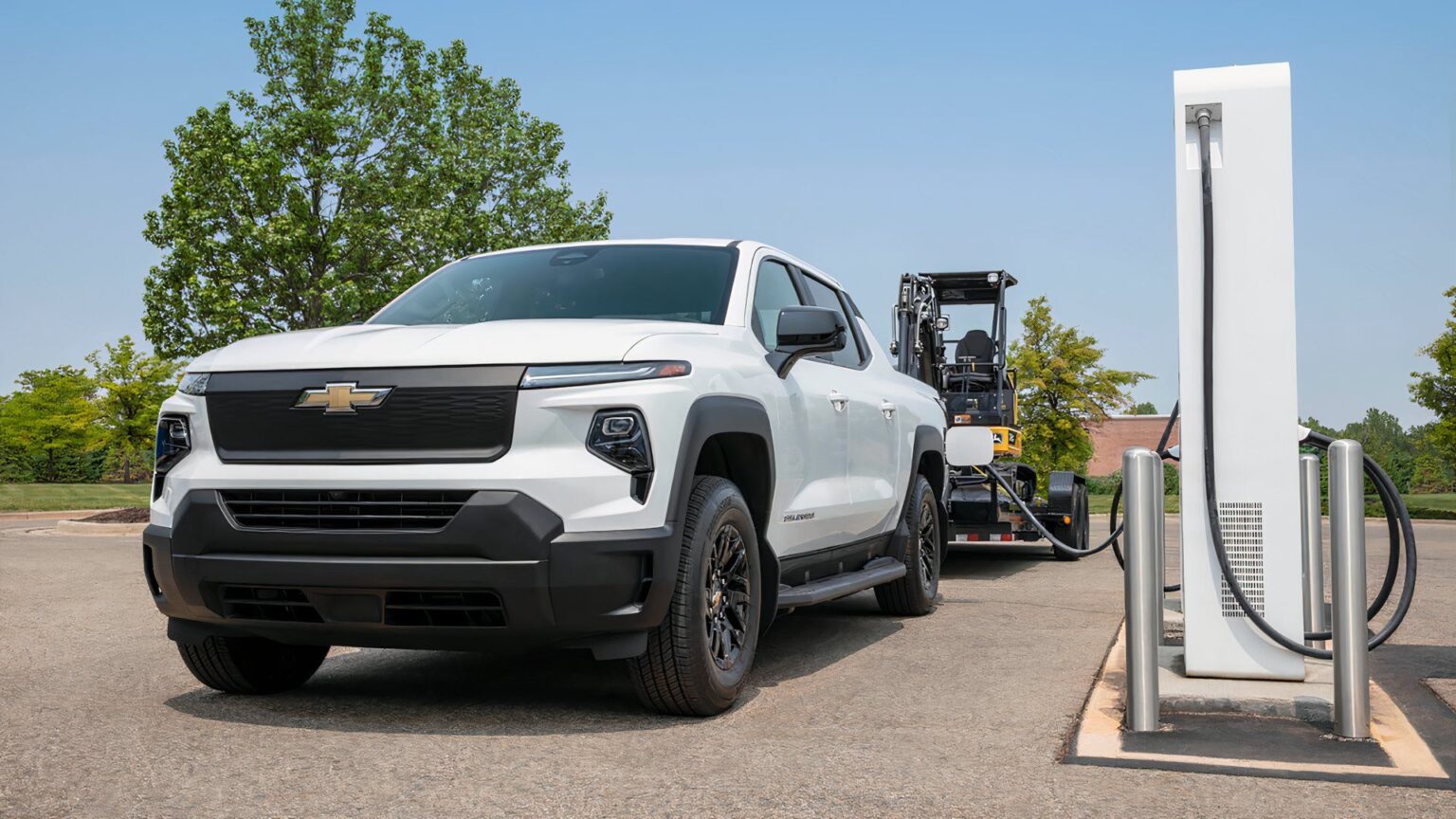Tesla has been the fastest-growing EV brand in the U.S. ever since it introduced its second product, the Model S, back in 2012. Since then, new products and the marketing success of hype-man CEO, Elon Musk, have kept it growing year over year. No longer. According to the J.D. Power-GlobalData Automotive Forecast for March 2025, Tesla has lost its crown for fastest-growing EV brand.
Its replacement isn’t who you might think, either. It’s not Rivian, nor Lucid. The new fastest-growing EV brand is none other than Chevrolet, a legacy brand from a centuries-old automaker that’s famously fumbled selling electric vehicles at least twice in the past, but now seems to have figured things out.
What’s Driving Chevy’s EV Success?
Credit for Chevy’s growth in EV sales comes from three models: the Equinox EV, Blazer EV, and Silverado EV. Those three vehicles, all of which debuted in 2024, took over for the now-defunct-but-returning-again-soon Chevy Bolt, and they’ve been killing it.
According to Forbes, GM’s market share of EVs doubled in the fourth quarter of last year to 12.5 percent. The automaker also overtook Ford as the country’s second-largest EV automaker, behind Tesla, of course. Most of this growth was driven by Chevy’s EVs.
The reality is that Chevy’s EV success is being driven by one model in particular, the Equinox EV. This compact electric SUV has a range that exceeds 300 miles and a starting price below $35,000, and that’s before federal tax incentives are factored in. Even though the Equinox EV has been on sale for less than a year, it ended 2024 as the ninth-best-selling EV in the United States.
GM just released its sales results for the first quarter of 2025, and its winning ways are continuing. The automaker reports EV sales are up 94 percent year-over-year and reached a total of 31,887 units in the first quarter. Chevrolet’s EV sales alone are up 112 percent year-over-year.
What Happened To Tesla?
To be clear, Tesla is still the biggest seller of EVs in the U.S. by far. The company is estimated to have delivered over 1.79 million EVs globally in 2024, around 630,000 of which were sold in the U.S. That said, its overall sales actually declined for the first time ever in 2024, down 1.1 percent compared to 2023.
There are a number of factors contributing to Tesla’s slowdown, including aging products, undelivered promises, and, of course, politics. Elon Musk’s recent participation in government alongside President Donald Trump, his Department of Government Efficiency, and his funding of right-wing candidates have turned much of the buying public against him and, by association, Tesla. Hundreds of protests at Tesla dealerships across the country now take place on a weekly basis, each larger than the last.
The effect has been profound and goes beyond vehicle sales. Tesla’s stock price has also been hammered, falling from its year-to-date high of $428.22 per share to $274.81 at the time of this writing, a drop of 36 percent.
How long Musk’s participation in Trump’s administration will continue is unclear, but even if he returned full-time to Tesla tomorrow, the damage to the company’s reputation may not be reversible. Other EV manufacturers such as Chevrolet smell blood in the water, and they’ll likely show Tesla the same type of mercy it showed them over the last decade, which is none.
Read the full article here


